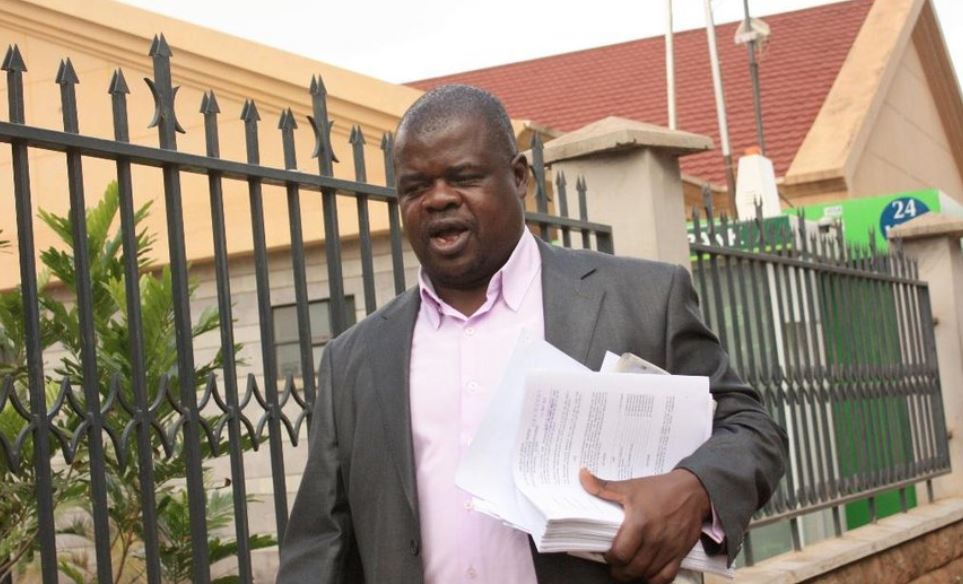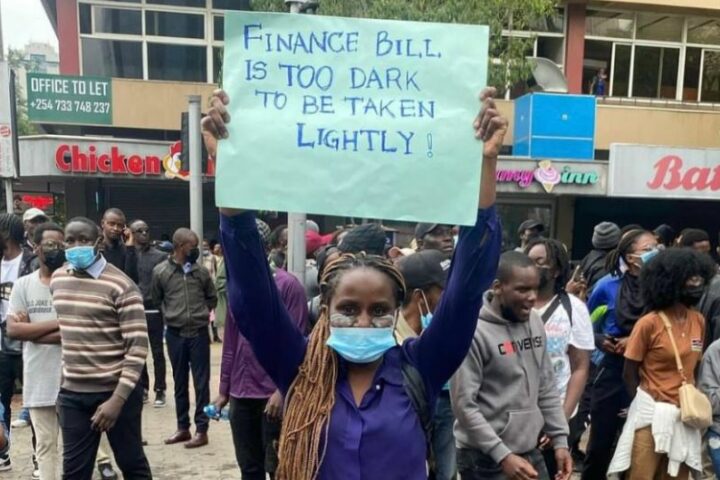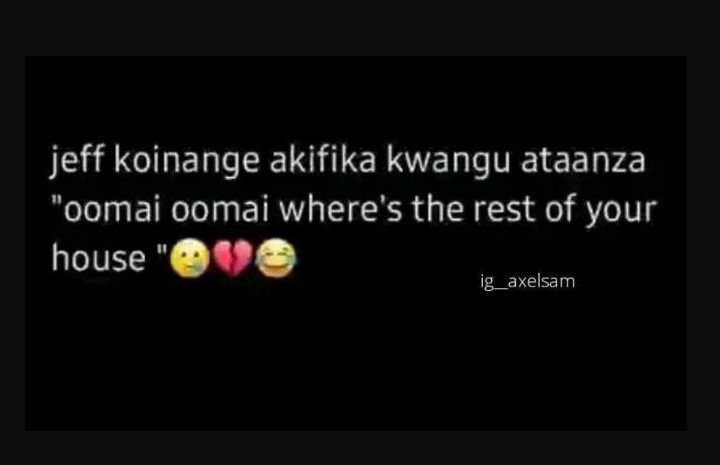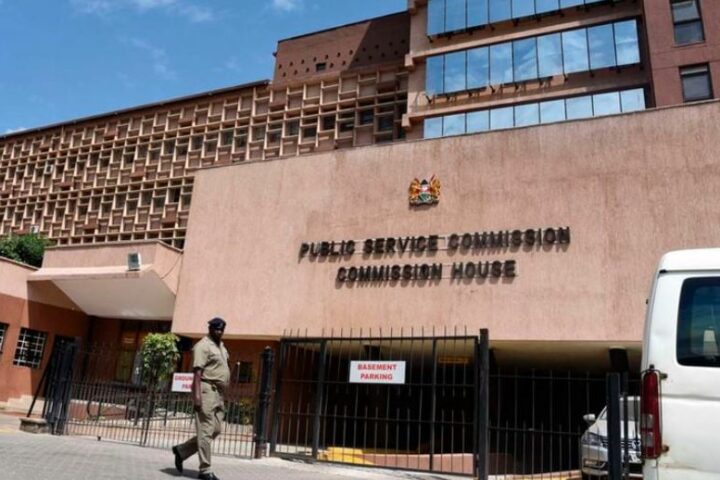 While he is not a lawyer by profession, Okiya Omtatah Okoiti is seen as the country’s public defender number one.
While he is not a lawyer by profession, Okiya Omtatah Okoiti is seen as the country’s public defender number one.
The activist responded to 13 questions from Sunday Nation readers:
1. The many petitions you have presented in court on behalf of Kenyans and the fact that you have succeeded in many of them points to a void in our public life as ordinary citizens created by the government through its many agencies. Sir, who is sleeping on the job that has prompted you to step in? How can we hold these public servants or institutions responsible as taxpayers for sustainable quality service delivery? Komen Moris, Eldoret
My activism is anchored on the Constitution of Kenya, 2010. My overriding objective is to the immense power of the Constitution to have the Judiciary entrench constitutionalism and the rule of law in the conduct of public affairs.
Hence, all the petitions I have filed concern public law, and they fall in three broad categories: motions challenging decisions of law-making institutions where I contest the constitutionality of statutes by Parliament or by county assemblies, and both the constitutionality and legality of subsidiary legislation; motions contesting the constitutional and legal validity of policy decisions and other administrative actions of the executive at both national and county levels, and motions seeking to protect public property from thieving public officials and private individuals.
From my experience, the struggle is against contemptuous disregard of the constitutionally prescribed limits and powers of government, and affirmation that Kenyans are not subjects but sovereign citizens with their rights and fundamental freedoms enshrined in the Bill of Rights.
From the above, it follows that the solution to our problems is to uphold the Constitution.
However, it is clear our political leadership has failed in its duty to whip us as a nation into fully implementing the Constitution so as to realise its great promise.
2. Not long ago you called on Kenyans to contribute towards instituting a suit against all the MPs over house allowances they had awarded themselves. How did this initiative go and how much were you able to raise? Githuku Mungai
The initiative was not for instituting the case but to pay for the costs of serving the petition on the MPs through full-page adverts published in the Daily Nation and Standard newspapers as ordered by the High Court. I required at least a million shillings but only raised some Sh130,000.
3. Over the course of your public life, you have largely been plastered with two labels: a defender of public interest by many and a rebel to a few. This can be attributed to the many cases you have argued out in the corridors of justice, among them bank capping rates, judges retirement age, most recently the CBA-NIC tax waiver. These cases largely touch on the crucial interests of the ordinary citizen. I can’t help but ask, what is the philosophy behind what you do? Do you feel intimidated or shaken by the weight of cases you take on considering the fact that in many cases you take them on your own? Kagwera Raphael, Kisii
The philosophy behind what I do is the Gospel of Christ, who preached about God’s love and divine mercy, and continues to reveal that the Kingdom of God is among us and therefore we must do right.
At creation time, God gave Adam and Eve the power over all that he had created, but He did not give them the power over themselves; He gave them the law.
And when they broke that law they lost the Garden of Eden. Hence, the rule of men is doomed since it is anathema to the will of God. Only the rule of law works.
Hence, humanity cannot rule itself and prosper except by the laws anchored on promoting the rights and fundamental freedoms of all people – and that includes obeying the Constitution of Kenya, which largely mirrors the Gospel of Christ.
I don’t feel threatened or intimidated by the cases I take on since I take them up as part of my apostolate.
And for as long as God wants to use me to call upon all Kenyans to obey the law, I will be available to do so.
4. Having had a peaceful, respectful, issue-based and effective campaign for the Busia senatorial race during the 2017 elections, one which didn’t turn out as most of us had expected, what is your objective opinion on Kenyan politics and campaigns? Kagwera Raphael, Kisii
My Busia senatorial race was a very rewarding experience for me.
Though I vied on a Ford-Kenya ticket in an ODM stronghold and, literally, I had no money to match what the incumbent unleashed, I chose the route of civic and political education to agitate for resource-based leadership and it worked very well.
It was a neck and neck race where I got more than 100,000 votes, and the difference between me and the Senator wasn’t much.
But even though we can’t cap the amounts of money candidates spend on campaigns, the amounts and their sources must be disclosed to law enforcement.
That way, it will at least reduce the distortion illicit money has on the democratic process, especially on poverty-stricken populations scavenging for basics. We must also eradicate mass poverty at the grassroots.
5. Your nature of work in the areas of human rights demands that you really need a good and reliable sponsorship so to speak, or stable source of income from where you can get resources to mount the kind of legal challenges you undertake. What is the source of your income? What is your reaction to allegations that you are often paid to institute the cases you do? Francis Njuguna, Kibichoi
First of all I don’t need a lot of money because I don’t hire lawyers to research, draft and prosecute my cases. I do so myself.
Second, I lead a very simple lifestyle which is basically a source of income through the savings I make.
I have seen people who earn much more than I do lead very miserable lives due to reckless lifestyles.
As for allegations, they are just that. It is human nature to speculate where you have no facts.
And it is written in the Holy Book that John the Baptist ate not and he was called a madman; Christ ate and drunk and He was called a glutton.
6. Our history is full of examples of good human rights activists including yourself, Kepta Ombati, Cyprian Nyamwamu, Boniface Mwangi, among others who tried to unsuccessfully run for political office. No doubt, political office is an expansion of activism and movement work. What should good activists do to win elections and continue their good work as politicians? Raphael Obonyo, Nairobi
They should not give up and I don’t think they have.
The society is changing and, soon, we will have issue-based politics and one’s ethnicity or capacity to give handouts will not be trump cards at elections.
While still at it, I point out that Prof Kivutha Kibwana, the Makueni Governor who has performed exceptionally well, was and is an activist who was elected into office and has delivered on his convictions.
7. There is a popular joke in Kenya about the Judiciary: ‘Why hire a lawyer when you can buy a judge?’ Former Chief Justice Dr Willy Mutunga began ambitious efforts to transform Kenya’s courts and earn back the people’s trust. What is your assessment of the transformation at the Judiciary given that you frequently interact with them? Raphael Obonyo, Nairobi
The joke is just a joke. Whereas one or two judges may not be up to scratch, most judges and other judicial officers are very hard working individuals who deliver for Kenyans in very difficult situations.
The Kenyan Judiciary is the only arm of government that retains and espouses Kenya’s republican character.
We cannot compare the Judiciary to the Executive and the Legislature, at both national and county levels, which are totally captive to ethnicity and corruption
8. Due to the nature of your work, sometimes you challenge decisions of the powerful and mighty. Don’t you ever fear for your life when making such challenges? Have you ever received threats to have you drop the matter you are pursuing? Emmanuel Lesikito
Though I take precaution, I know that there are no human beings who are mighty and powerful. Only God is mighty and powerful.
So I have no fear of any man and their threats, since God is my shield. No man can destroy my soul.
9. Of all the advocacy and litigation cases that you have undertaken in the interest of the public good, explain the one case that posed the greatest challenge and possibly a danger to your life. Nyongesa Chris Makhanu, Nairobi
A 2012 petition where I challenged the flawed procurement of the BVR kits which failed to work on Election Day.
I was offered a bribe of Sh9 million to drop the case but I refused. I then applied to court for police protection but Justice Majanja dismissed my application.
Two days later I was attacked by two men who hit my head with metal bars and left me for dead.
As they were clobbering me, I could hear them say something to the effect that “Ulikataa pesa sasa utakufa na kesi yako pia itakufa” (You refused our offer; we are going to kill you and your case is going to collapse). But God saved me.
10. Do you really always read Kenyan’s mood before you move to court? I am referring to the case on the new currency, which by and large has been welcomed by a majority of Kenyans. Bernard Nyang’ondi, Mombasa
No, I am driven by fidelity to the law and the public interest.
11. Thank you for fighting for the common person. My question is: Fresh job seekers are required to produce a Certificate of Good Conduct and clearance certificate from Ethics and Anti-corruption Commission, among others. These requirements make me wonder, do jobseekers have to pay for not committing crime? Do they have to pay for not being corrupt? Why have you never gone to court to challenge these primitive requirements? Evans Muteti, Mombasa
Justice Odunga declared those requirements to be unconstitutional in the case that was filed by Justice GBM Kariuki.
I also filed another case on the same — but it is pending at the High Court — to allow the Supreme Court to determine whether it will allow the High Court to proceed or it will hear an advisory reference on the same issue that was filed by the Kenya National Commission on Human Rights (KNCHR).
12 Sir, you are known to be one of the most relentless and leading human rights defenders in Kenya. You are no guest in our courts and all these court cases require resources. What motivates you? Geoffrey Oyoo, Embakasi East
The Holy Scripture, especially the teachings on the salt and light of the world; the Good Samaritan, and the call to be witnesses of Christ.
13. Recently, a young woman died at KNH after she developed maternal complications due to negligence by staff on duty. Of course many other preventable deaths occur in public hospitals due to negligence. Don’t you think it is more worthwhile to fight for the rights of such helpless victims as opposed to, say, pursuing elitist court cases like the one on new currency notes? Stephen Kathurima, Nairobi
There are no elites under the law. All are equal. Secondly, I believe in draining the swamp not waiting to kill every snake and mosquito that escapes from the swamp.
The mess in our hospitals and other institutions is a rule of law problem. Let’s drain the swamp by implementing the Constitution and upholding the rule of law.






